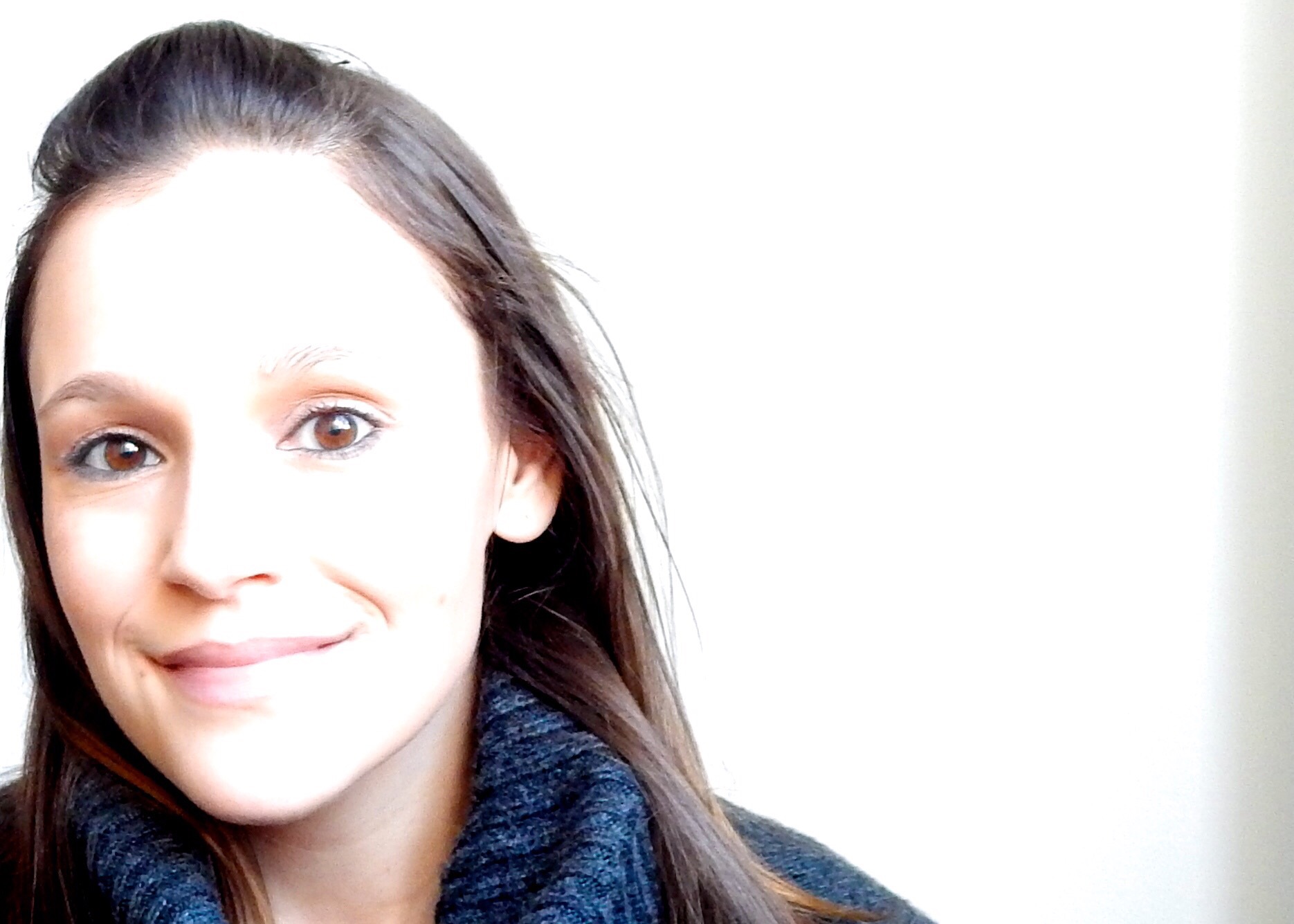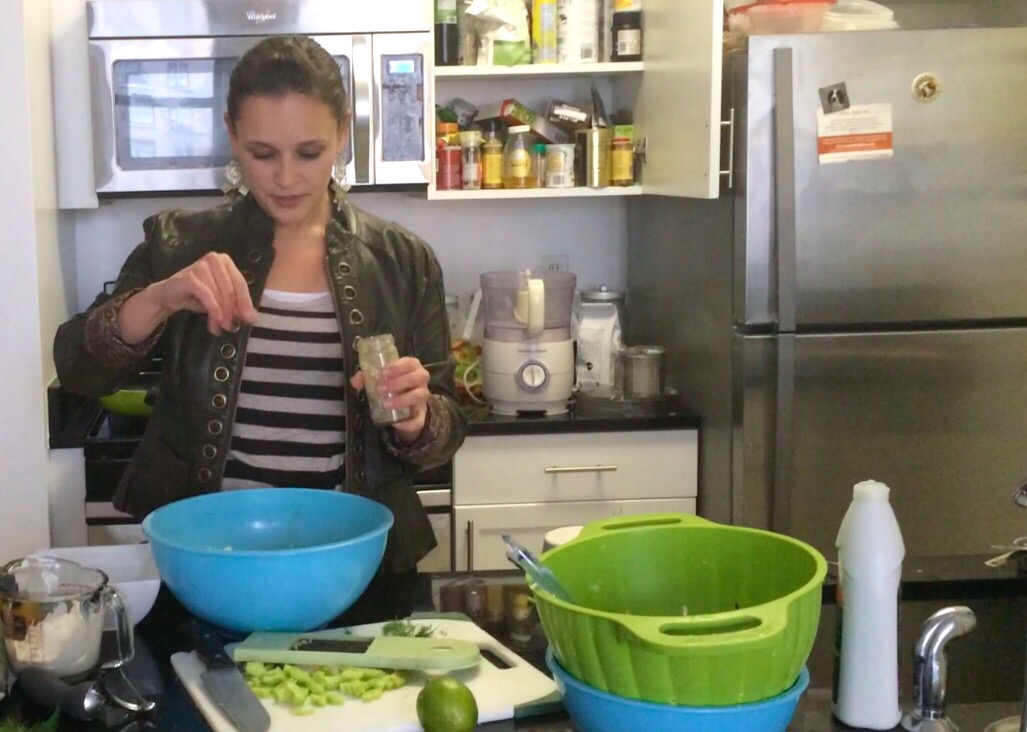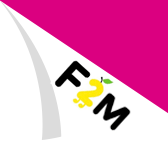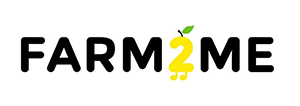by Amanda Zantal-Wiener
In business school, I was unofficially dubbed the “Resident Baker” of my MBA program. It was my favorite stress-busting activity: Filling biodegradable takeout boxes that I had purchased at a restaurant supply store with the cookies, bars and other sweets I made when I should have been studying data analysis. I would quietly leave them in the campus’ most central area, only to return and find them empty no more than an hour later. “Amanda” and those white boxes eventually became synonymous.

It was symbolic of a lifelong coping mechanism: Use food. Eat something. Make up a plate. Before business school, I had used the habit to populate a blog, to publish bylines and to write content for different organizations. That’s the thing about being a Greek Jew: When families aren’t exchanging guilt-ridden howls, they’re preparing a meal.
When I graduated from that program last June, I quickly relocated from San Francisco to New York, to move into a new apartment and start a new job with a consulting company. Finally! I was back on the east coast (prior to business school, I spent the majority of my adult life in New England), in the lap of Dunkin’ Donuts, and had finally found a company where I really fit in and would thrive, if my year of interning with them was any evidence.
It wasn’t. One thing that isn’t taught in business school is the transition from intern to full-time within the same company. It’s a bumpy road, at best, and looks nothing like what was expected, especially in smaller companies. I finally sought advice from a mentor after five gloomy, baking-less months on the job. “Small companies are like families,” she told me. “Everyone knows your business…and everyone resents you for it.” (As a Greek Jew, oddly, I sensed that territory should have felt familiar.)
As she and other mentors candidly advised me to quit, and to give myself a chance to see what I could really do out there on my own, I looked forlornly at my stash of unused take-out boxes, collecting dust on a shelf I couldn’t even reach without the help of a step-ladder. There were people out there, I realized, who actually make a living out of something they love. How could I become one of them?
If the Amanda from that moment met the person who I am today – the trepidatious new business owner who is doing work centered on the original loves of her life (food, fashion and the written word) – she would certainly have questions. How did we get here? Are we in debt? Is this really happening?
“Breathe,” I would tell her. “We got this.”
Earlier in life, I don’t believe the results would have been the same. After recently celebrating my 31st birthday, I realize that I’ve made just enough wrong turns: Moves that my mother insists weren’t “wrong,” per say, just “scenic routes,” in that they all helped me get to a point at which I am generally happier, healthier, and certainly baking more; just last night, I expelled a bad mood by whipping up a batch of Food52’s Brown Butter Blondies. While I do anticipate more wrong turns and difficult decisions ahead, I also understand that certain helpful measures can be taken. Though these lessons weren’t easily learned, I’ve identified a few that have been invaluable to my own journey.
Talk to everyone you can. I cannot stress the value of mentorship in my own experience, or my surprise at where I was able to find it: Colleagues, supervisors, seasoned friends. When faced with a difficult decision, especially at a less-than-content point in life, introspection is a tall order. The people most familiar with my character were better able to objectively evaluate the situation and, as a result, judge how different actions would lead to the best outcomes for me. These individuals were more than willing to help, but not before I specifically asked for their guidance.
Evaluate your level of power. Work, in general, is where we spend the bulk of our waking hours. When it’s not going well, it’s easy to feel defenseless and self-pity. I certainly did. It’s equally difficult to impartially come up with realistic solutions, but it is imperative to take a step back and analyze things from a different perspective. While it’s less than ideal, for most, to use savings as a way to securely escape an unpleasant situation, if those resources are there, at least acknowledge them; that admission alone will empower you, even if minimally. Then, evaluate them. What can you actually do? Chances are, it’s more than you think, pointing to the aforementioned value of mentors who can often see opportunities that, subjectively, may not outwardly appear to us.
Write down what you do well. Then, think about the things you would do if you never had to work another day, and cross any items off the former list that aren’t in tandem with what would really make you happy. Finally, be realistic; as much as I would love it, running my own test kitchen and blogging about it would not be a feasible way to earn a living. However, by narrowing down the things for which I truly have a passion, I was able to comprehensively figure out a way to build a business rooted in them.
Pay it forward. You’ve taken the advice; now, give it. Schools and youth groups are always in need of mentors; volunteerguide.org is a great place to find organizations seeking help. Opportunities to provide mentorship, however, often crop up in more subtle ways. If a young alum from your alma mater reaches out to you, don’t feel that you’re too busy to respond. If you get to a point where you’re recruiting, circle back to the community from which you came, and where you previously experienced your own struggle.
Lastly, remember that we’re all here for the love of food. Don’t discount its ability to make a bad day better. Whether helping to make sandwiches for a shelter or teaching your child how to measure flour, remember the clarity that can come from thoughtfully interacting with food: Growing it, preparing it and enjoying it. The fruits of such labor, I imagine, have aided dozens of graduate students with seemingly endless anxiety. Perhaps it can also lead to the birth of new ideas and stories, fostering this ongoing exchange of knowledge.

Amanda Zantal-Wiener is a writer, editor and an entrepreneur. When she isn’t working with clients on content and business development strategy, she’s typically eating, cooking, or boxing. Her work has been published in the Boston Herald, City Living Magazine, Organic Authority and EcoSalon.




